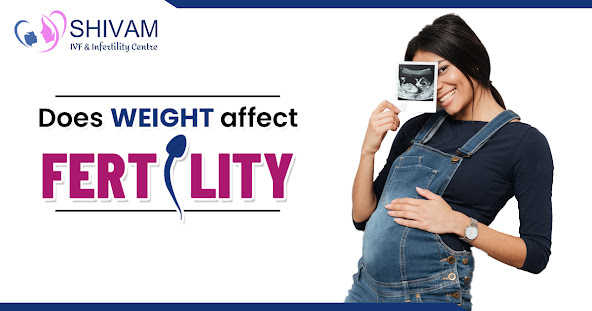Does weight affect fertility?
Weight
is an important consideration for both women and men in the preconception
period. If you’re significantly overweight or underweight this can cause your
body to produce more or less of the hormones that regulate ovulation in women
and disrupt sperm production in men, which can be consulted from the best fertility clinic in Delhi.
Weight gain in some women can be an indicator of a hormonal imbalance caused by a condition known as “Polycystic ovarian syndrome (PCOS) “ – which affects both your ability to lose weight and disrupt regular ovulation. However, not all women with PCOS are overweight.
One
of the easiest ways to determine if you are underweight or overweight is to
calculate your body mass index (BMI). There are many tables available to
evaluate that.
What is a normal BMI?
A
BMI between 19 and 24 is considered normal, and less than 19 is considered
underweight. A BMI between 25 to 29 is considered overweight and greater than
30 places you in the category of obese. Many underweight, overweight and obese
women have no problem getting pregnant. But others will have problems
conceiving, most often due to ovulation problems.
A
BMI of 18.5 or less (underweight) often causes irregular menstrual cycles and
may cause ovulation to stop altogether. A BMI of 17.5 or less could indicate an
eating disorder. Women with less than normal BMI should work with their
nutritionists to understand the cause of this situation and develop strategies
to rectify it.
However,
even obese women with normal ovulation cycles have lower pregnancy rates than
normal-weight women, So ovulation isn’t the only issue. A visit to IVF Doctor in Delhi before becoming pregnant can help identify other
disorders related to obesity that impact pregnancy such as thyroid disease,
insulin resistance, and diabetes.
The
result of a healthy lifestyle may not always be weight loss. Muscle buildup(
which is encouraged) can increase body weight. Striving to lose weight by
following extreme diets is not sustainable and may be detrimental to a healthy
pregnancy. Hence the focus should be on lifestyle modification not specifically
on weight loss.
PCOS and Infertility
PCOS
(polycystic ovarian syndrome) is a hormonal condition that affects up to one in
five women of reproductive age and can impact your ability to lose weight and
ovulate. The weight gain then contributes to increased insulin levels, creating
a self-perpetuating cycle.
Here
are some common symptoms of PCOS.
- Weight
gain and difficulty losing weight.
- Increased
hair growth.
- Irregular
period cycle.
- Infertility
If
you’re experiencing a delay in falling pregnant, a fertility specialist can
help by offering a comprehensive medical assessment including understanding
your medical history and conducting further tests.
For
the female, this might include an ultrasound scan to determine if a condition
such as PCOS may be affecting her ability to conceive. If you are diagnosed
with PCOS there are dedicated PCOS clinics that can help you manage
non-fertility-related symptoms.
Women
with PCOS may require additional treatment to get pregnant including
medications to decrease insulin resistance. These women should seek the
assistance of reproductive endocrinology and infertility specialists. For more
information about PCOS engage with the best infertility center in Delhi.
Source:-



Comments
Post a Comment